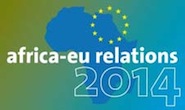The “EU’s comprehensive approach to external conflict and crisis”, launched jointly last week by the European Commission and the High Representative of the EU for Foreign Affairs and Security Policy, has been a long-awaited Communication for those following the development of the EU’s external action closely. It refers to conflict and crisis in it’s title but, in essence, goes beyond this as it aims to clarify the guiding principles for a joint EU external action across all areas, while emphasising dealing with conflict (prevention) and post-crisis recovery. The EU started discussing the need for this ...
This article was co-authored by Anna Knoll and Niels Keijzer (Deutsche Institut für Entwicklungspolitik (DIE). The upcoming UN High-level Dialogue on International Migration and Development. Is it not the dream of all people to have the right to move and live where they want? , Owen Barder thinks so. However Paul Collier suggests, in a short article, that people who do move for a better life incur substantial psychological costs that may broadly offset their economic gains through higher wages. He argues that migrants may become wealthier but not always happier and that tensions may ...
The review of the European External Action Service (EEAS) is in full swing – on June 12th the European Parliament (EP) presented its inputs on the organisation and functioning of the service, which is just over 2 years old. The reply from EU High Representative Catherine Ashton gives some hints on the content of the report, which will eventually to be submitted to the Council, and is expected by summer 2013. ECDPM has also discussed the potential politics of the review process scope in their previous paper ‘Gearing up for the 2013 EEAS Review’. The ...
The EU’s “comprehensive approach” in external action policy has provoked a range of responses - but the most widespread seems to be confusion. Ask 10 people from across the EU institutions to define the comprehensive approach and chances are you’ll get 10 different answers. While the basic premise is simple enough to grasp, it’s hard to find consensus, common language or any sense that the EU is actually acting comprehensively. Current developments in Mali have made the necessity for clarity even more pressing. This blog seeks to explore the key questions needed to frame the ...
The EU’s new development policy framework, the “Agenda for Change”, does not explicitly mention social and economic inequalities. Now, the European Commission clearly acknowledges that a variety of inequalities exist in both low- and middle-income countries and elaborates its policy response. In a recently adopted Communication, the EU affirms the value of social protection for overcoming socio-economic inequalities and for promoting inclusive growth: “people’s ability to participate in and benefit from wealth and job creation”. Social protection is defined as a set of “policies and actions that enhance the capacity of all people, but notably ...
++ SERIES: BUILDING THE POST-2015 DEVELOPMENT FRAMEWORK ++ 87% of global youth live in developing countries and with high unemployment levels exclusion of youth is a major concern to many governments. It is often the young who make up the bulk of un- or underemployed in developing countries, about half of all under 25 year-olds live on less than 2 USD a day. The Africa Progress Panel predicts “a surge in the number of young people in Africa” in the next few years pointing out that the median age in Africa is currently 18, which ...
The Joint Africa-EU Strategy (JAES) is quite the opposite of what Herman van Rompuy, President of the European Council, warned of in his now famous speech on the EU’s strategic partners. In the case of the JAES, a policy framework in place since 2007, the strategy is spelled out in Action Plans. Yet the process and political direction of the strategy could be optimized. The JAES is meant to be the EU’s strategy towards Africa as much as Africa’s strategy towards the EU. This concept would mean that the partnership reflects both partners’ priorities. This, ...
No, we don’t know enough about the results achieved through the EU’s old external action instruments. But that does not inhibit an evidence-based discussion on the future instruments, which can still be revised as they are currently subject of debate between the different EU institutions. On Wednesday, the European Commission presented proposals to amend the rules guiding the spending for EU external action from 2014-2020, the timeframe of the next EU budget. In expert jargon, these rules are called “financial instruments”, and there are 10 such instruments, each for a specific area of intervention. The ...
EU Development Commissioner, Andris Piebalgs, discussed the development cooperation aspects of the European Commission’s (EC) Multiannual Financial Framework (MFF) 2014-2020 with members of the European Parliament’s Development Committee on 12 July. These strongly correspond to the proposals on the future of EU development policy the EC is currently considering, and aims to table in September. ECDPM’s Jeske van Seters provided an outline of the MFF’s development provisions in a previous Talking Points blog post, so we won’t here re-summarise the Commissioner’s presentation on this, but instead highlight additional points he made in the debate with ...
After the public consultation, high-level European debates on the future of EU Development Policy now focus on the Communication expected from the European Commission (EC) in June. The Communication will lay out a modernised European Union (EU) development policy that will propose new policy guidelines on development aimed at improving EU support to developing countries to speed up their progress towards the Millennium Development Goals and beyond. The communication will also inform EU negotiations that will be launched in June on the bloc’s post-2013 Multi-annual Financial Framework (MFF). As part of the process towards formulating ...

















